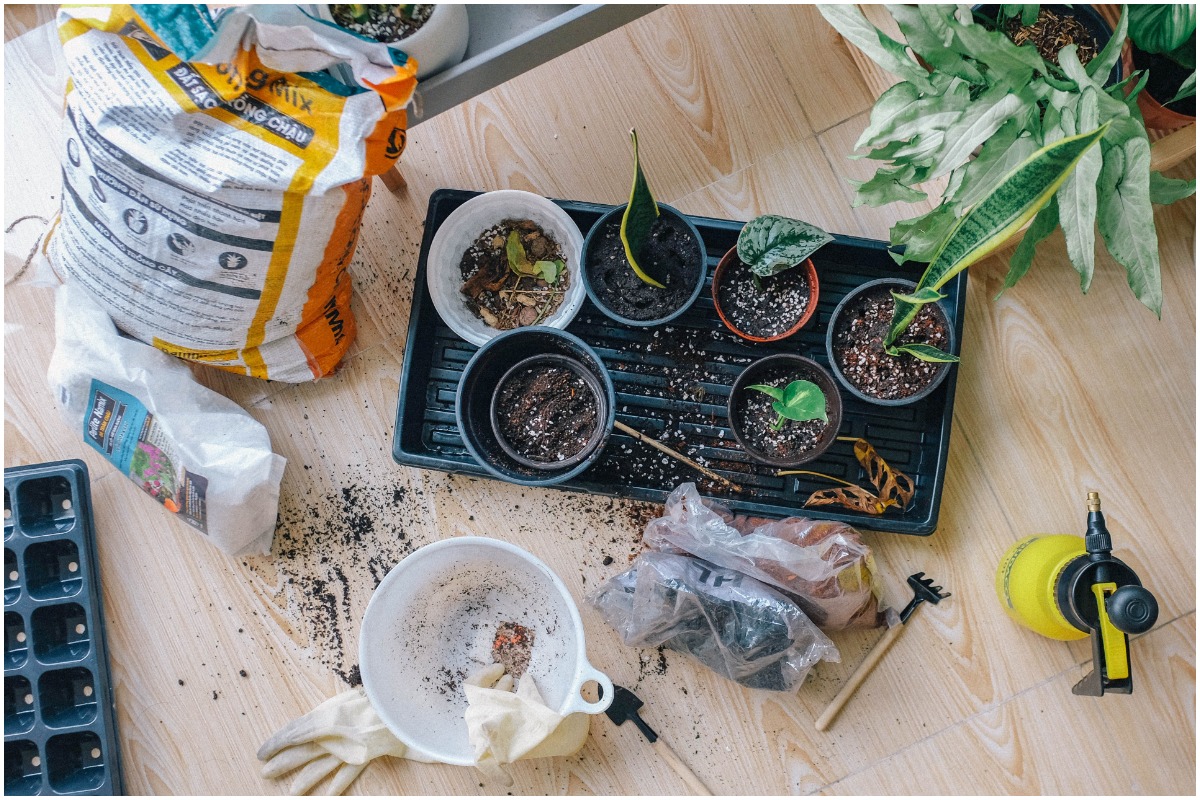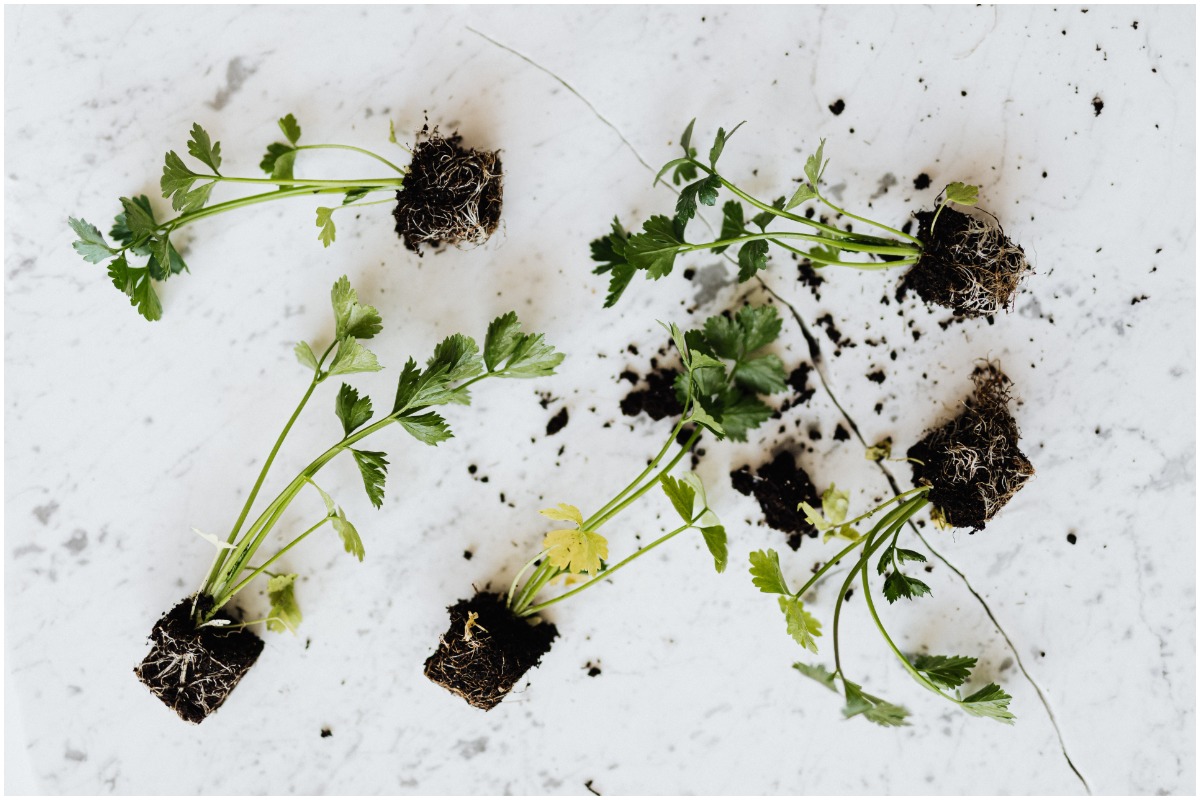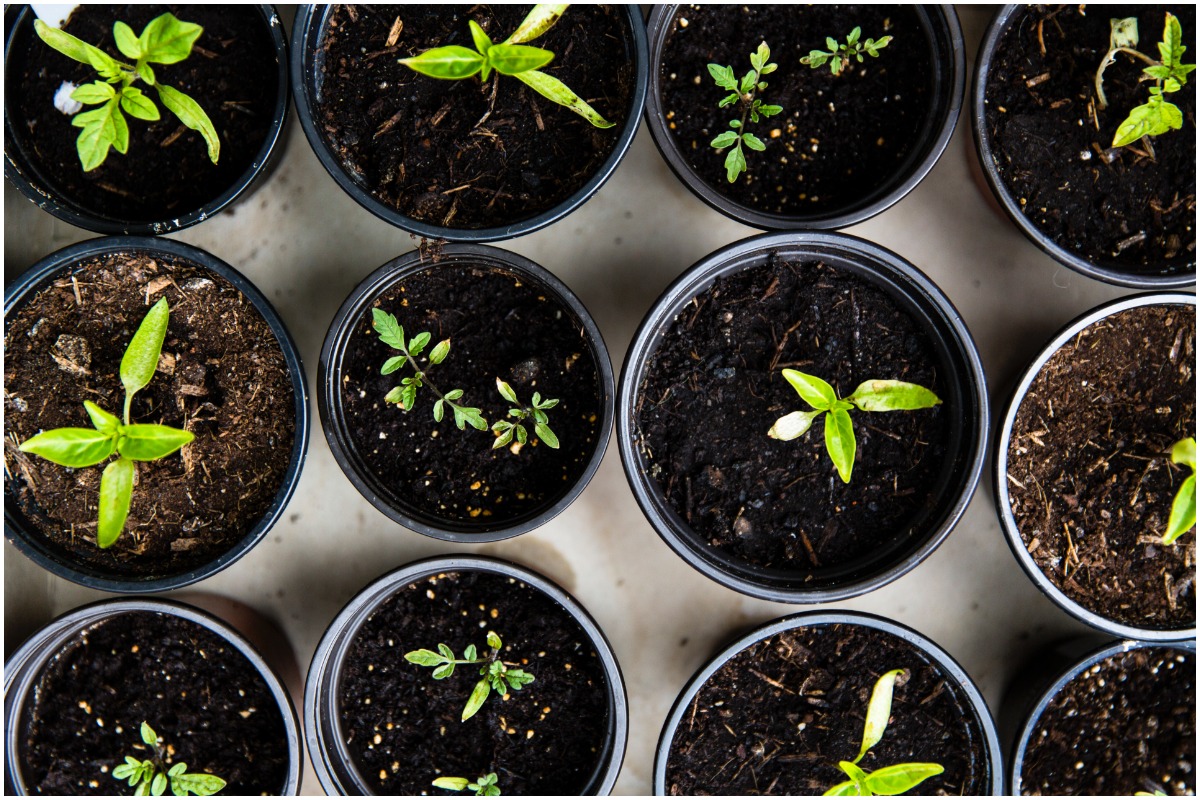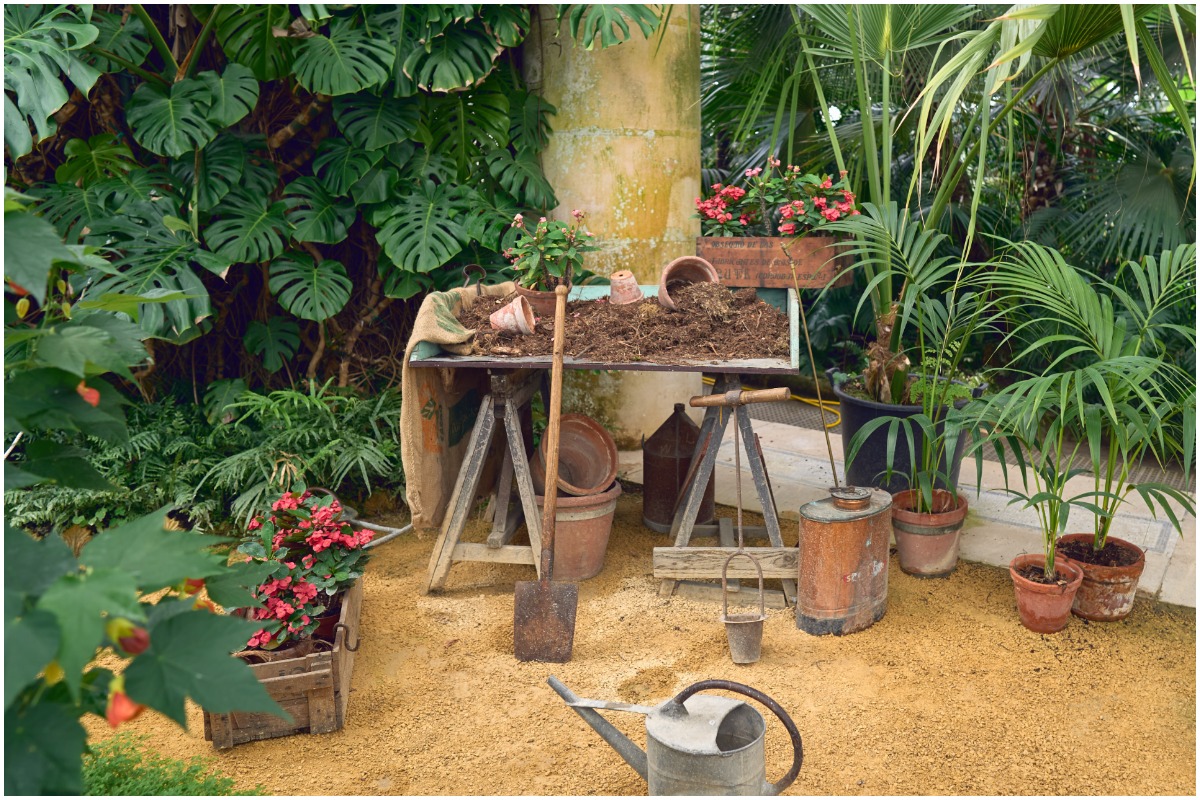It’s Gardening Thyme: A Beginners Guide to Apartment Gardening
If you’re an apartment dweller looking for easy ways to reduce stress, boost your mood, improve your home’s air quality, and reconnect with nature – gardening might be the perfect option for you. Just because you live in a small space doesn’t mean you can’t flex your green thumb and grow your own delicious food.
Whether you live in an apartment in Houston or a condo in Boston, this beginner-friendly guide, full of tips from expert growers, will break down everything you need to know about apartment gardening. Let’s get started.

What to grow in an apartment garden
The right plants to grow in your garden largely depend on where you plan to grow them. If you plan on having an outdoor garden, choose plants that can tolerate direct sunlight. If you want an indoor garden, shade-loving plants are the better choice.
Here are a few low-maintenance plants perfect for beginner gardeners or those without a green thumb.
Microgreens
When gardening in an apartment or balcony, start small by growing microgreens. You can grow delicious, nutrient-dense edibles like alfalfa sprouts and pea shoots in a small pot or container and harvest them in 7-10 days. – Permaculture Gardens
Herbs and vegetables
A themed kitchen garden may be the perfect option when only a small gardening space is available. A special cocktail garden could feature herbs like basil, rosemary, mint, and thyme, or a salsa garden could include cilantro, chives, tomatoes, and peppers. Most herbs can be grown with about 4 hours of sun in small containers, and balcony or patio railings can easily support bushy or vining plants. – Kitchenairy Gardens

Greens
If you’re gardening for food in a small space – it’s best to focus on high-yielding crops. Greens and herbs can be harvested in a cut and come again style, which will give you regular harvests and a reason to be in your garden more often. – Philadelphia Box Gardens
Edible flowers
Get creative by building a beautiful, bountiful small-space ecosystem. Consider interplanting a small variety of vegetables, fruits, and herbs with ornamental plants. Mixing edible flowers such as calendula, marigolds, and nasturtium will attract beneficial insects creating an organic pest control system. It’ll also add a pop of color to your space and increase your food supply. – The Seed Sage
How to start your apartment garden
Once you have chosen the best plants for your apartment, it’s time to begin gardening. Here are a few tips that’ll help you start your apartment garden off right.
Find a sunny spot
Contrary to popular belief, you don’t need much space to have a garden. You can start apartment gardening by placing pots or planters on a small balcony, patio, or even a sunny windowsill. Look for a spot with around 4 hours of direct sunlight per day. Start with herbs and leafy greens; they’re easy to grow and can tolerate less direct sunlight than other veggies. – Seed & Vine
Start with potting mix, compost, and container-friendly plants
To grow veggies on a balcony or patio, start with a 5-gallon fabric grow bag or a plastic container with drainage holes. Fill 50-50 with potting mix and compost, then add container-friendly varieties like Morden Midget eggplant, Spacemaster cucumber, Jaloro jalapeno, and Geranium Kiss tomato. During the season, replace soil nutrients with a slow-release organic fertilizer. – Hands on Harvest
Have a plan
Whether you’re working with a few acres or a few hundred square feet, making maps is one of your best tools for strategy, planning, and preparation. Don’t bother with a precise architectural floor plan, but you can start with a roughly sketched overhead view of your apartment or building. Be sure to include roofs, courtyards, and any other common areas you can access; it may open up creative ideas for growing. Once you have your base map, you can explore making additional maps, such as the Sun Map, to determine the daily pathway of your light source. – Thunderbird Disco Homestead

Care tips for apartment gardening
To ensure that your garden stays happy and healthy, here are a few care tips to consider.
Have a watering schedule
The most important thing for indoor gardening is not to overwater. For years, I used to kill my plants. A horticulturist told me I was drowning my indoor plants and said the secret to strong, healthy plants was less water, not more. Now, I pick a day of the week, and I give each plant just a bit of water on that day. Play it by ear with each plant. If the leaves start to yellow, it’s too much water, so back off a bit and never let your plant sit in water. – Slap Dash Mom
Choose the right pot
Use containers that are large enough to accommodate the plants’ needs. Most plants are fine in six inches pot, but I find twelve inches or higher my baseline height for the garden container. Also, remember to provide adequate drainage for your edible plants. You can use a pot with holes in the bottom or place a layer of pebbles at the bottom of a pot to drain. Adequate drainage will prevent overwatering and allow enough airflow to the roots of the plants. – Safiyat Hamiss, garden coach, designer, and the founder and owner of Tasty Harvests
Create the right environment
Find plants that’ll grow well in the environment you place them in – growing something is better than growing nothing. Remember to water with light, clean, healthy water. To ensure your water has proper nutrients, we recommend using water filtration concentrates like Drops of Balance, and to give your garden a little extra love. – Perfect Gardens

Take advantage of vertical space
When floor space is a premium, people often forget to use the vertical space around them to maximize their gardening space. Make the most of climbing plants to ensure you fully utilize the vertical space your apartment or balcony offers. Climbing plants enable you to have that true garden feel without compromising the space you have. – Rhino Greenhouses Direct
Utilize your windowsill
A great way to use what little space you may have in your rental apartment or townhouse is to place pots along your windowsill. This is a fantastic way to grow herbs, tomatoes, and strawberries, even with space limitations. Be mindful of overcrowding your plants, and ensure they all have plenty of access to sunshine. – Garden Wizard
Invest in a window box
Apartment gardening has many benefits; plants purify the air, provide oxygen and bring the uplifting and calming effects of the outdoors into your home. It takes less space than you think, too – a window box can be used to brighten up the smallest room, and outdoor balcony railings are great for climbers such as Virginia Creeper or Clematis. Nothing beats the taste of freshly pulled herbs and vegetables that can be grown in a window box or balcony. – GrowerExperts
Final thoughts
Now that you know what to grow, how to get started, and some expert care tips, hopefully, you feel ready to start your own garden. Remember to have fun and you’ll be gardening like a pro in no time.
The post It’s Gardening Thyme: A Beginners Guide to Apartment Gardening appeared first on Redfin | Real Estate Tips for Home Buying, Selling & More.
